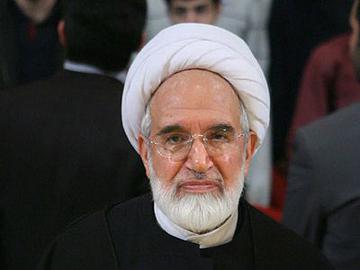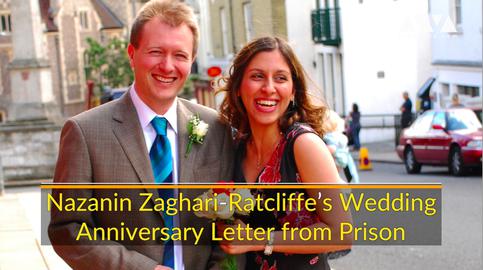Mehdi Karroubi, one of the key leaders of the opposition Green Movement who has been under house arrest since 2011, has begun a dry hunger strike to protest against his treatment and to demand a public trial. According to his wife Fatemeh Karroubi, he “only has taken his heart medicine and has not touched either water or food.”
"My father started his hunger strike today [August 16] after the morning prayers," Karroubi's son, Mohammad Taghi Karroubi, who lives in the United Kingdom, told Reuters. "He has demanded again to be put on public trial and has also asked for the security forces to leave his house," he said.
Karroubi, who ran as a reformist candidate in 2009’s presidential election, has been living under the eyes of Iran’s Intelligence Ministry agents for more than 2,400 days, following the results of the election, which were widely disputed and led to massive unrest. He and the other reformist candidate, Mir Hossein Mousavi, and Mousavi’s wife Zahra Rahnavard have all been confined to their homes since 2011.
In 2016, in a letter to President Hassan Rouhani, Karroubi asked for a public trial, but the Supreme Leader Ayatollah Khamenei rejected the idea. Figures close to Khamenei claim that a public trial would end with a death sentence for Karroubi so his house arrest should actually be viewed as a favor to the Green Movement leader. Khamenei himself has said that Karroubi is being treated “tenderly.”
Karroubi’s decision to go on hunger strike now is significant for two reasons. He is 80 years old and recently underwent two heart surgeries. He has suffered from a number of health problems over the last few years and a hunger strike could seriously threaten his health and even his life. Karroubi has said before that he believes the Islamic Republic authorities intend to take the lives of opposition leaders— but now he is demonstrating that he has the power to do this himself.
If Karroubi dies by his own choice, it could inflict enormous psychological damage on the regime. Two years ago, President Hashemi Rafsanjani, who died in January this year, warned that if leaders of the Green Movement died under arrest, the regime would have to live with the stigma forever. The hunger strike gives further resonance to Rafsanjani’s warning.
The second point of significance, however, concerns President Rouhani. During his first presidential campaign in 2013, he implicitly promised the electorate that he would endeavor to lift the house arrests of the Green Movement leaders, but since his victory he has been mostly silent on the subject — although he has tried to negotiate a resolution out of the public eye. Karroubi’s hunger strike will mean more intense pressure on Rouhani.
Ali Motahari, a member of parliament who has been pushing to end the house arrests for more than two years, has said that Ayatollah Khamenei will decide whether to lift the house arrests of the Green Leaders, and that the Rouhani administration cannot do anything about it. However, some people believe that President Rouhani should do what he can, at the very least ordering the Intelligence Ministry agents out of Karroubi’s home as he has requested.
Fatemeh Karroubi has confirmed that her husband requested that the agents be stationed immediately outside their home, but his request has been ignored.
Apologize and Repent
Hardliners say that Mehdi Karroubi must apologize and repent before he can be released from house arrest. The Supreme Leader has repeatedly made the same point. But Karroubi has been against any kind of apology and demands a public trial regarding the events following the 2009 presidential election.
As news of Karroubi’s hunger strike broke, a number of parliamentarians appealed to the incarcerated politician, and pleaded with him to stop the strike. In parliament’s public session, Mostafa Kavakebian, a reformist representative from Tehran, urged President Rouhani to heed Karroubi’s request to remove Intelligence Ministry’s agents from his home. Following this request, the live broadcast from the parliament was suddenly cut off, revealing that the state-run Islamic Republic of Iran Broadcasting (IRIB) is unwilling to air any public discussion on the subject. Ayatollah Khamenei has also repeatedly made it clear that he does not want to talk about the issue publicly.
During the 2017 presidential election, Karroubi supported Rouhani, and over the last four years President Rouhani has tried to end the house arrests through confidential negotiations with the Supreme Leader. However, because Ayatollah Khamenei has publicly demanded apologies from the Green Movement leaders, Rouhani has failed. Although the house arrests have continuously been a contentious issue for Rouhani's administration, Karroubi’s hunger strike has given the matter real urgency. Rouhani’s inability to solve the problem has the potential to damage his credibility with the voters, and to weaken their trust in him.
visit the accountability section
In this section of Iran Wire, you can contact the officials and launch your campaign for various problems

























comments